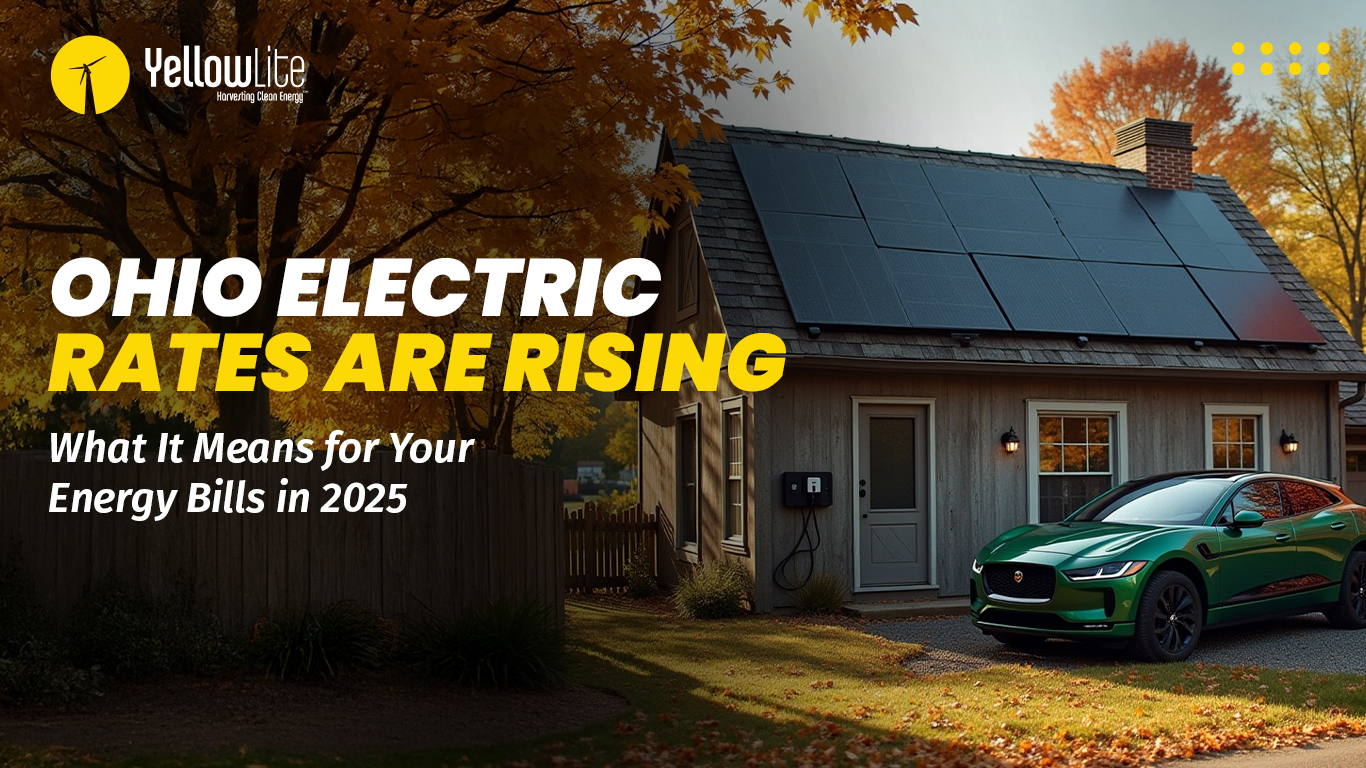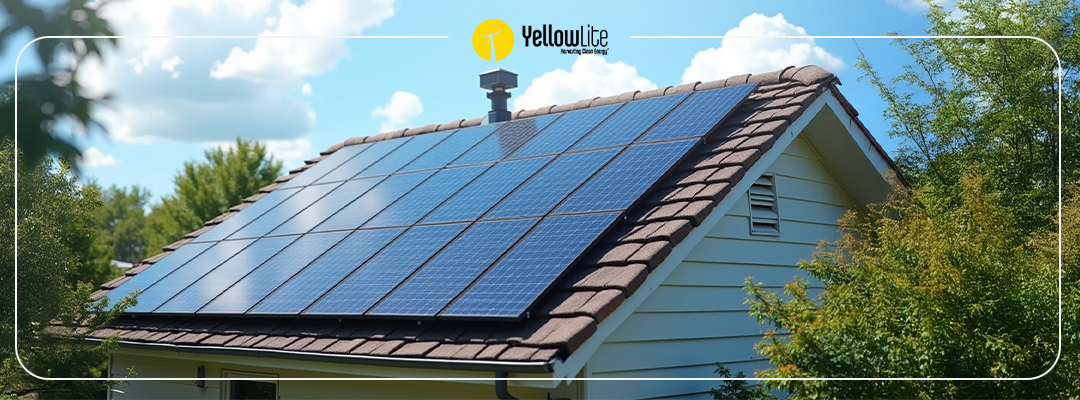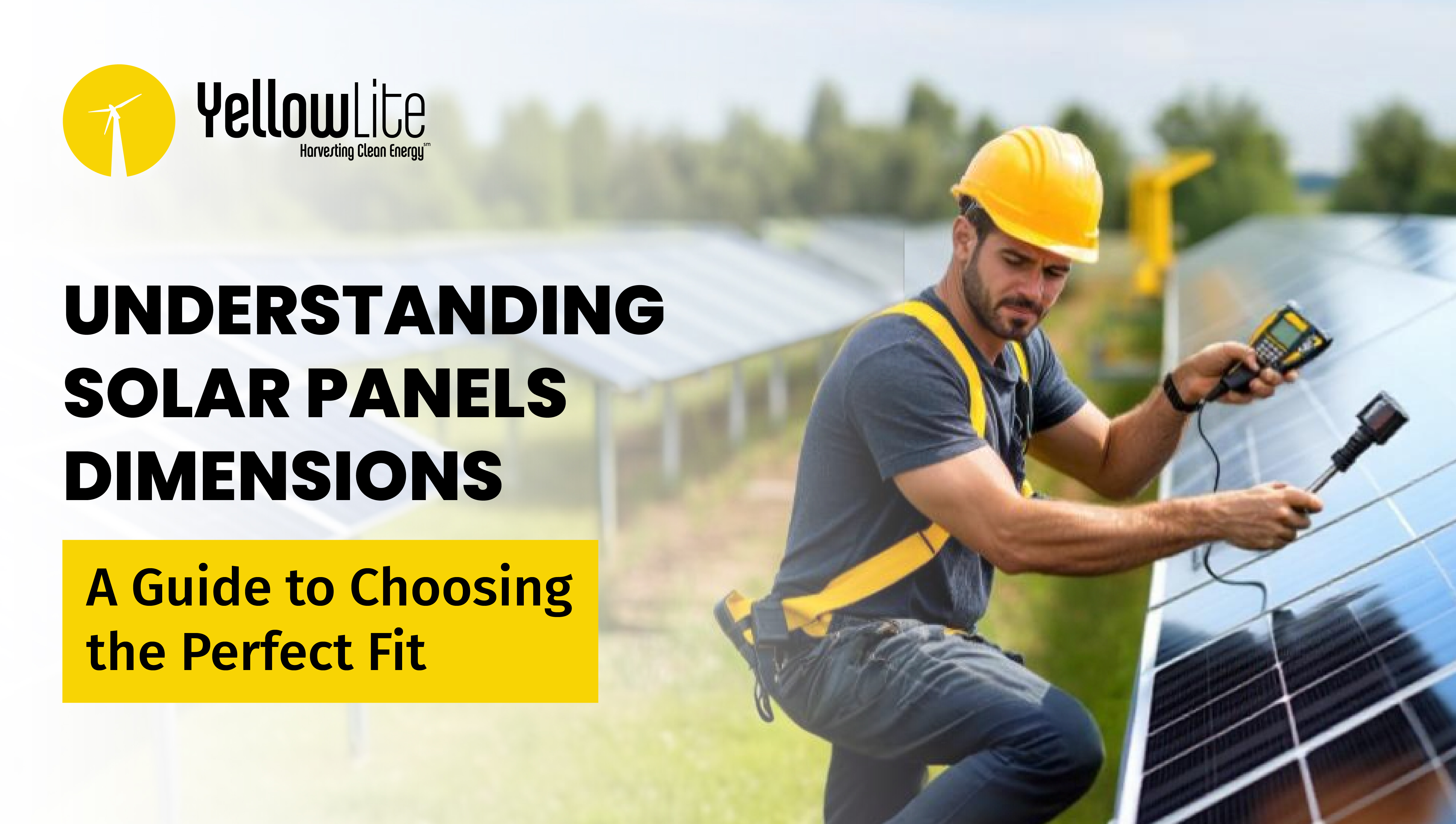If you’re one of the increasing numbers of Ohioans who have made the switch to solar, you’ve taken a major step toward reducing your carbon footprint and cutting down on your energy bills.
But if you’re still relying on solar panels alone to power your home, you’re missing out on a key feature that will increase the value of your solar investment: battery backup storage.
In this post, we’ll explain why adding backup storage to your solar panel system is worth the investment and how you can do it.
What is battery backup storage?
Battery backup storage systems store excess energy generated by solar panels so it can be used later. There are multiple types of batteries, but they all achieve the same purpose: storing energy so you can use it when you need it.

Why Battery Backup Storage Makes Sense
There’s a major pro to solar power. It’s a clean energy source powered by something we have a limitless supply of, the sun.
But there’s a rub. Just because sunlight is limitless doesn’t mean your solar panels always have access to it. Your solar panels generate energy all day long while they have access to sunlight, but at night, the power source is cut off. If you use a solar monitoring system, you’ll notice that on rainy and overcast days, efficiency is decreased.
When it comes to solar energy, the old saying holds true: if you don’t use it, you lose it.
Unless you use a backup storage system, that is!
Battery backup storage solves this problem by storing excess energy generated by solar panels during the day and allowing you to use it when you need it most. You can use your energy at any time, including overnight or during extended power outages.

How to Choose the Right Storage System
First, you need to evaluate your energy requirements and goals.
Are you trying to power your entire home or just some specific appliances? Perhaps you just want to be able to power your refrigerator and A/C and keep the lights on during a power outage? Maybe you only need enough to power medical devices or to keep the internet working.
Depending on the type of system you get, storage systems can be a significant investment, anywhere from $300- tens of thousands of dollars. So, you’ll want to make sure you’re operating within your budget. Don’t forget to keep an eye out for longer warranties, as those are usually a sign of higher quality products.
Lithium-ion batteries are one of the most common storage options, but others are growing in popularity.
You’ll also need to make sure that the storage system you’re considering is compatible with your solar panels. Most solar inverters are designed to work seamlessly with storage, but you should confirm with a YellowLite solar consultant before purchasing.
Check out this guide for more details on how to decide which solar storage system makes the most sense for you.
Potential Savings and Benefits of Battery Backup Storage
Adding battery backup storage to your solar panel system offers a range of benefits and savings. First, it can help you reduce your reliance on the grid, which reduces energy bills over time. You can save even more money by sending any energy back to the grid you don’t use or store by taking advantage of Ohio’s net metering policies.
If you’re in an Ohio market that offers Time of Use rates, you can further reduce your monthly energy bills by using time-shifting strategies.
Battery backup storage provides reliable power during power outages. During long, cold Ohio winters, it pays to have energy stored up so you can stay warm and keep your food fresh!
Get it right with Yellowlite
By adding battery backup storage to your existing solar panel system, you can enjoy clean, reliable energy at any time and significantly reduce your reliance on the grid. Whether you’re looking to save money on your energy bills, reduce your carbon footprint, or simply enjoy reliable power during outages, battery backup storage is a smart investment that can pay off for years to come.
Contact our pro-solar experts now to discuss which storage options make the most sense for you.



